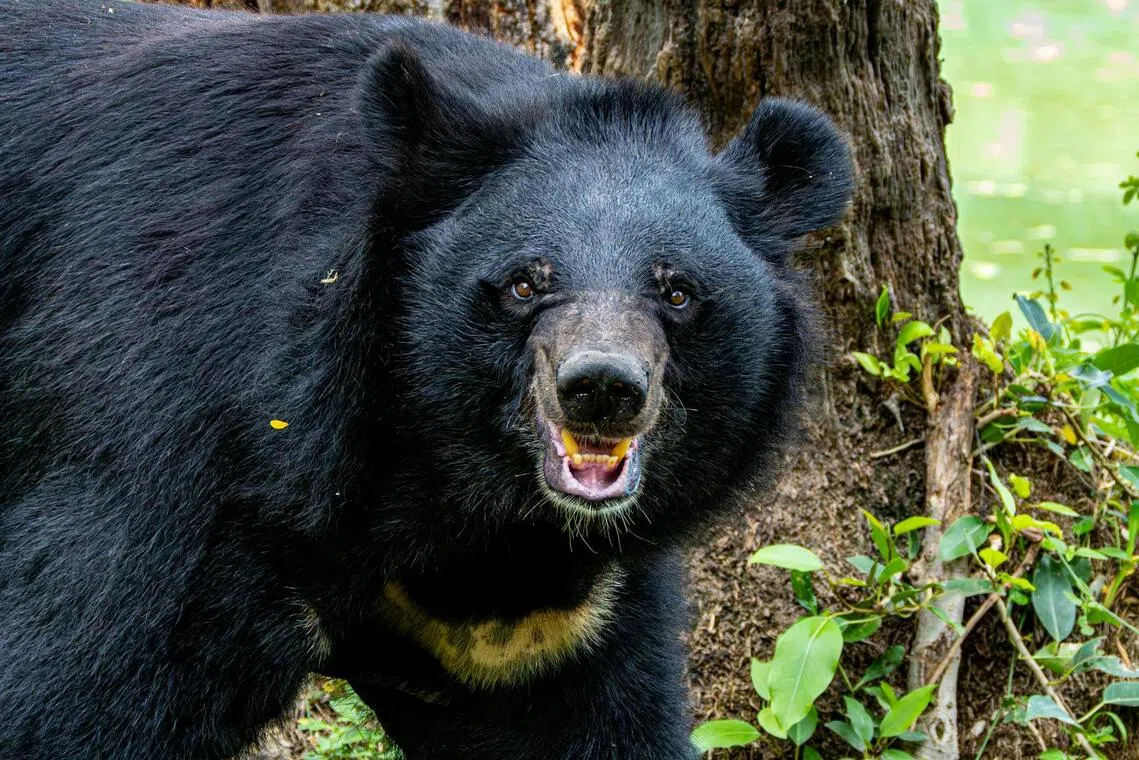Number of fatal bear attacks hits new record in Japan
Sign up now: Get insights on Asia's fast-moving developments

More and more wild bears have been spotted in Japan in recent years, even in residential areas.
PHOTO ILLUSTRATION: PIXABAY
TOKYO – Bears have killed a record number of people in Japan this year, the environment ministry said on Oct 16 just as another possible victim was reported missing.
Bears hungry because of shortages of food such as acorns – which has been blamed on climate change – are encroaching more into towns where the human population is ageing and dwindling.
Experts say that warmer weather is also affecting the hibernation patterns of the animals, which in the case of brown bears can weigh half a tonne and outrun a human.
The new total of seven deaths in the current fiscal year “is the largest toll since 2006, when statistics started”, an environment ministry official told AFP.
It surpassed the previous high of five human fatalities recorded in the 2023-24 fiscal year, the official told AFP on condition of anonymity.
More than 100 other people have been left with injuries including bites and deep gashes from the bears’ sharp claws.
The record was reached following confirmation that a man in his 70s found dead on Oct 8 in the northern Iwate region had been killed by a bear.
Japanese broadcaster TV Iwate said the man’s head and torso had been separated.
The body of another man in his 70s
A few days earlier, the body of a 78-year-old man with multiple claw marks was recovered in the central prefecture of Nagano.
However, the cause of death was yet to be confirmed in either of those last two cases.
A worker at a hot spring resort in Kitakami, also in Iwate, was also reported missing on Oct 16. Local media said that a search team had found what appeared to be human blood.
Five more people were reported injured on Oct 16 in incidents in Akita and Fukushima prefectures, Fuji Television network reported.
A 1.4m-tall adult bear entered a supermarket in the Gunma region north of Tokyo last week, leaving a man in his 70s and another in his 60s
The store is close to mountainous areas, but has never had bears come near before, Mr Hiroshi Horikawa, a management planning official at the grocery store chain, told AFP.
The animal damaged a fish compartment and “in the fruits section, it knocked over a pile of avocados and trod on them”, he said.
The store’s manager told local media that around 30 to 40 customers were inside at the time, and that the bear became agitated as it struggled to find the exit.
A Spanish tourist was also attacked by a bear in October at a bus stop in the scenic village of Shirakawa-go in central Japan.
Climate change is a factor in the increased number of incidents because of its effects on food that the animals eat, such as acorns, as well as hibernation times.
Japan has two types of bears: Asian black bears – also known as moon bears – and the bigger brown bears, which live on the main northern island of Hokkaido.
Thousands of the animals are shot every year. AFP


